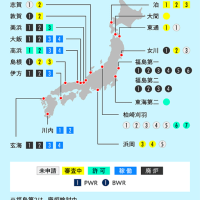2016-05-01 13:34:53
VOTE JUNE 5, 2016
http://www.swissinfo.ch/eng/an-end-to-poverty-_a-basic-income-for-all---the-issue-before-swiss-voters/42096442
A basic income for all
– the issue before Swiss voters
By Sonia Fenazzi
SOCIETY
IN DEPTH: VOTE JUNE 5, 2016 IN DEPTH: DIRECT DEMOCRACY

...
Languages: 6
APR 18, 2016 - 17:00
How much would be given would be worked out later by lawmakers (Keystone)
How much would be given would be worked out later by lawmakers
(Keystone)
In a world first, the Swiss are voting in June on whether the state should pay a monthly basic income to every citizen. Is it the answer to the changing jobs landscape or a utopian concept?
The initiative, "for an unconditional basic income", is rooted in debate about a two-speed society where the pay gap continues to grow. Unlike other similar initiatives, it focuses on the digital revolution and the resulting loss of traditional jobs.
Wording of the proposal
The initiative proposes to insert the following article in the federal constitution:
1. The government will provide a basic income.
2. The basic income will allow the people to live in a dignified manner and participate in public life.
3. Legislation will determine the funding for the system and the actual amount of the basic income.
Supporters say giving everyone from the cradle to the grave an unconditional basic income to cover all essential needs would eradicate poverty and dependence on social welfare. It would allow people to choose a job they like, encourage training, creativity and volunteering. They believe it would free up more time for caring for children and elderly and infirm family members.
Put forward by an independent citizen group, the initiative doesn’t have much political backing. In parliament it was rejected by the centre-right majority and gathered little support, even among left-leaning parties. The House of Representatives voted it down by 157 to 19 with 16 abstentions. In the Senate its sole supporter was leftwing Social Democrat Anita Fetz.
"It is worthwhile to talk about this proposal, because it is an idea that could be a real solution, most likely in 20 or 30 years time, when the digitalisation of work will result in the loss of many jobs," says the Basel senator.
"It is a far-out idea that is not feasible," says Raymond Clottu, a conservative right Swiss People’s Party parliamentarian, pointing to the "enormous costs" it would bring.
The idea is to have an income by which all people could live in dignity. No specific amount has been set out; it would be up to the lawmakers to figure that out. But the promoters of the initiative have mentioned a monthly income of CHF2,500 ($2,600) for adults and CHF625 for minors.
"Based on population statistics from 2012, this means it would cost CHF208 billion a year to the country. This would come to about 35% of GDP. It is flabbergasting," says Clottu.
How it would work
Anyone who does not have a paid job would receive the unconditional basic income, and all paid work up to that amount would be replaced by this payment. To fund it, all earned income would be taxed to a maximum amount equal to the amount of the basic income.
In practical terms, assuming a monthly basic income of CHF2,500, a person who has an income of CHF1,500 would receive another CHF1,000. Someone with CHF2,500 would not receive more. Someone earning CHF6,500 would be taxed on a net income of CHF4,000.
The same mechanism would be applied in the case of benefit payments from social welfare. Payments up to CHF2,500 would be replaced by the basic income, while anything over this amount would continue to be paid as a separate social welfare payment.
These arrangements would cover 88% of the funding requirements for a basic income. For the remaining 12%, other sources of funding would have to be found.
Nor does the intiative specify where the money would come from, so it would have to be worked out in legislation following a “yes” vote. According to the model suggested by the promoters, an unconditional basic income – known in some countries as a universal basic income – would be mainly funded from taxation on salaries and the transfer of social welfare benefits. For the remaining CHF25 billion or so, there would have to be more taxes or transfers within government.
"Finding CHF25 billion worth of additional taxes, the way things are now, seems impossible to me," says Clottu. One idea from the promoters would be to increase the current value added tax (VAT) of 8%. "This would mean purchasing power would go down and the country’s economy would be weakened," says Clottu.
"I too am against increasing VAT. But that is just one idea among many. Among the promoters, there are those who want a micro-tax on financial transactions. I think that would be the right way to go, as well as a tax on computers. Since the discussion is taking place in the context of the digitalisation of work, funding should be sought for it in the same area," Fetz believes.
Proactive approach
In any case, says Fetz, "it is a mistake to talk about funding now. The question is: what does society do if the traditional income gained from work is lacking? When automation and sophisticated computer programming have swallowed a lot of jobs in all fields, from the unskilled to the highly qualified, then we are going to need to find an answer.” So it is better to be proactive than to have to fix things after the fact, she says.
"This initiative isn’t proactive, it’s putting the cart before the horse,” notes Clottu. “In time we will have to examine how we can generate income, but in spite of pseudo-robotisation there will always be a need for the human being. Behind every computer there has to be a human being. There will be jobs that disappear, but new ones will appear. Being proactive means strengthening the links between training and industry. It is at the level of training that we should be aware and evolving to keep up with the needs of industry and technological developments."
One of the concerns from both from the left and the right is that the universal basic income calls into question the whole Swiss social security system.
But Fetz says: "It would not replace all social insurance schemes. Currently there are 13. Reducing the number would be an opportunity to adapt the system to new challenges." She believes we cannot continue with a system based on the principle of full employment when major changes are on the horizon.
For Clottu, though, a basic income would "put at risk a system which is not perfect, but works well enough, and motivates people to work and get training. So we should try to improve it, consolidate it", not bring in a basic income which would burden wage-earners and businesses and "destroy the motivation to work".
What would you do?
Only 2% of Swiss would stop working if the government paid them a basic income of CHF2,500 per month; a further 8% would consider quitting work depending on the circumstances. That’s according to an opinion poll carried out on behalf of the promoters of the initiative, using a sample of 1,076 people.
Source: Swiss News Agency
2016-05-01 13:34:53
2016年6月5日の国民投票
ベーシック・インカム スイスで実現するか?
Sonia Fenazzi
政治 経済 社会
特集: 直接民主制へ向かう
...
他言語で配信中:6
2016-04-28 11:00
Fenazzi
政治 経済 社会
特集: 直接民主制へ向かう
...
他言語で配信中:6
2016-04-28 11:00
「最低生活保障」(ベーシック・インカム)の導入。これはまったくの夢物語か、それとも労働における自動化が進む社会での問題の解決か。スイスの有権者は6月5日、この案件について投票する (Keystone)
「最低生活保障」(ベーシック・インカム)の導入。これはまったくの夢物語か、それとも労働における自動化が進む社会での問題の解決か。スイスの有権者は6月5日、この案件について投票する
(Keystone)
まもなくスイスでは、世界初となる決定が国民に委ねられる。果たして政府は、国民一人ひとりに、その収入に関係なく生涯にわたって月々のベーシックな所得を無条件に給付していくことになるのか。「最低生活保障」(ベーシック・インカム)の導入をめぐり、賛成派は、「資本主義が支配し、労働において自動化が進む社会が生み出す問題への解決策だ」と主張。だが、反対派にとっては非現実的で危険な夢物語だ。
6月5日に国民投票にかけられる「無条件の最低生活保障(ベーシック・インカム)イニシアチブ」は、給与格差が拡大し続ける現代の社会構造にまで論議が及ぶ。また、以前のイニシアチブに比べると、デジタル化によって多数の解雇者を生み出す新しい社会現象の中で提案されたイニシアチブでもある。
賛成派は、生活に不可欠な基本的欲求を満たせるベーシック・インカムを無条件で国民全員に給付すれば、社会福祉への依存や貧困を無くすことができるという考えだ。また、ベーシック・インカムがあれば、国民は皆それぞれやりたい仕事に没頭でき、教育、創造性、ボランティア活動が促進されるほか、高齢や病気の家族の世話や育児にもより多くの時間を費やせると主張する。
政党ではなく、一般市民によるイニシアチブ
これは独立した一般市民からなるグループから生まれたアイデアだ。政党はまったく関心を示していない。連邦議会でも右派や中道派の政治家は全員拒否の姿勢を示し、わずかな支持が左派や環境派で見られたのみ。下院では反対157、賛成19、白票16で否決され、上院では唯一バーゼル選出のアニータ・フェッツ社会民主党議員が賛成票を投じた。
このフェッツ議員は、「この案件は、熟考し議論する価値がある」と言う。「おそらく20年後か30年後、仕事のデジタル化によって大規模な解雇が発生したときに具体的な解決策になるアイデアだと思う」
それに対し、ヌーシャテル選出のレイモンド・クロットゥ国民党下院議員は「むしろ、実現不可能なアイデアだ」と反論し、「膨大な費用がかかる」と指摘する。
連邦憲法に明記する文案は次の通りだ。「ベーシック・インカムは、国民全員に人間らしい生活と公的生活への参加を可能にするものである」。金額設定は立法機関に委ねられるが、賛成派は議論の基礎になる金額として、成人に月々2500フラン(約29万円)、未成年に同625フランを想定している。
「2012年の人口統計を基にすると、国家の負担は年間2080億フラン。国内総生産(GDP)の約35%に当たるすごい金額だ!」とは、クロットゥ議員のコメントだ。
イニシアチブは財源についても何も定めていない。可決された後、これを実現するための法律で決めることとしている。賛成派は、給与天引きと社会保障の給付金からの振り替えで大半を賄うのがよいとの見解を示す。推計250億フランに上る不足分は、国家予算の積み替えもしくは税金で補完可能だという。
「こんな時期に、250億もの追加税収はまず得られないだろう」とクロットゥ議員は言う。発起者は付加価値税の引き上げを提案しているが、実現すれば物価は継続的に8%上昇する。「そうなればスイスの購買力は落ち、国家経済が衰弱してしまう」
フェッツ議員も付加価値税(消費税)の引き上げには反対だ。「だが、これは数ある提案の一つに過ぎない。財務取引にミニ税金をかけるという意見も、ある程度支持されている。私もこれはいい案だと思う。コンピュータに税金をかけるのもいい。労働がデジタル化していくという観点から議論が行われているのだから、財源もこの方向で探すべきだ」
先手を打つ。でもどうやって?
フェッツ議員はまた次のようにも述べる。「今から財源について議論するのは間違いだ。ベーシック・インカムは今日や明日のためのものではない。問題は、伝統的な収入が労働から得られなくなったときに社会が何をするか、ということだ。自動化や綿密に作られたコンピュータプログラムが、ごく単純な仕事から非常に優秀な能力を必要とする仕事まで、すべての職業において雇用の大部分を不要にしてしまったら、私たちはいやが応でも答えを見つけ出さなくてはならない。それなら守りに入るより先手を打った方がよいというのが私の意見だ」。
一方のクロットゥ議員は、「これは先手ではなく、本末転倒だ」と切り返す。「どうやって収入を作り出すかは、いずれはよく考えなければならないだろうが、偽ロボット化が進んでも、人の手はこれからもずっと必要とされる。コンピュータの後ろにいるのは原則的に人間だ。消滅してしまう職もあるだろうが、新しく生まれる職もあるはず。私にしてみれば、先手を打つというのであれば、教育と経済の関係を強化することだ。特に教育は、社会の変化を注意深く見つめ、技術の発展や経済の要求と足並みをそろえたものにしなくてはならない」
左右両派から出ている批判もある。「これはスイスの社会制度全体にかかわってくる問題」という声だ。だがフェッツ議員は、「ベーシック・インカムはすべての社会保険に取って代わるものではない」と抗弁する。「現在、社会保険はすべて合わせて13ある。その数を削減することになれば、それは社会制度を今後の新しい取り組みに適応させるよいチャンスになるかもしれない」。大きな変化の兆しがそこに見えているのに、完全雇用という原則に基づく制度を今後も続けていくには無理があるというのがフェッツ議員の考えだ。
対するクロットゥ議員は、次のようなリスクを指摘する。「完璧ではないがとてもよく機能し、労働や継続教育への意欲をかき立てている制度を破壊してしまうかもしれない。そうならないように、この制度を改善し強化する必要がある。そして、給与をもらって生活している人や企業に大きな負担をかけ、労働の意欲を失わせるような給付の導入も阻止しなくてはならない」
「最低生活保障」(ベーシック・インカム)の仕組み
発起者の提案は次の通り。非就業者にはベーシック・インカムを無条件で給付する。就業による収入がある人の場合、給与の中からベーシック・インカムに相当する金額が吸い上げられ、その代わりに、ベーシック・インカムが給付されるので、収入に変化はない。
具体的な例を示すと、月1500フラン(約17万円)の収入がある人は、ベーシック・インカムを仮に2500フランと設定すると、千フランの追加収入を得る。給与が2500フランの場合は、収入に変化はない。
6500フランの収入がある場合は、2500フランがベーシック・インカムの財源としてすい取られ、給与の金額は4000フランとなる。だが、ここにベーシック・インカムとして2500フランが支払われるため、最終的には合計6500フランの収入となる。
社会保障の給付金にもこれと同じ方法が適用される。上限の2500フランまではベーシック・インカムによって補償され、それ以上の分はこれまで通り社会保障制度から給付される。
この方法で、ベーシック・インカムに必要な財源の約88%をカバーできる。残りの12%については、新しい税金を導入するなどして別の財源を確保しなければならない。
あなたならどうする?
最低生活保障額として国が月々2500フランを無条件に給付することになったら仕事を辞めるという人はわずか2%。状況によっては辞めるかもしれないという人は8%。
これは、発起者の依頼により世論調査機関デモスコープが行ったアンケート調査の結果で、昨年11月末にドイツ語圏とフランス語圏の有権者1076人が回答した。(出典:スイス通信SDA/ATS)
VOTE JUNE 5, 2016
http://www.swissinfo.ch/eng/an-end-to-poverty-_a-basic-income-for-all---the-issue-before-swiss-voters/42096442
A basic income for all
– the issue before Swiss voters
By Sonia Fenazzi
SOCIETY
IN DEPTH: VOTE JUNE 5, 2016 IN DEPTH: DIRECT DEMOCRACY

...
Languages: 6
APR 18, 2016 - 17:00
How much would be given would be worked out later by lawmakers (Keystone)
How much would be given would be worked out later by lawmakers
(Keystone)
In a world first, the Swiss are voting in June on whether the state should pay a monthly basic income to every citizen. Is it the answer to the changing jobs landscape or a utopian concept?
The initiative, "for an unconditional basic income", is rooted in debate about a two-speed society where the pay gap continues to grow. Unlike other similar initiatives, it focuses on the digital revolution and the resulting loss of traditional jobs.
Wording of the proposal
The initiative proposes to insert the following article in the federal constitution:
1. The government will provide a basic income.
2. The basic income will allow the people to live in a dignified manner and participate in public life.
3. Legislation will determine the funding for the system and the actual amount of the basic income.
Supporters say giving everyone from the cradle to the grave an unconditional basic income to cover all essential needs would eradicate poverty and dependence on social welfare. It would allow people to choose a job they like, encourage training, creativity and volunteering. They believe it would free up more time for caring for children and elderly and infirm family members.
Put forward by an independent citizen group, the initiative doesn’t have much political backing. In parliament it was rejected by the centre-right majority and gathered little support, even among left-leaning parties. The House of Representatives voted it down by 157 to 19 with 16 abstentions. In the Senate its sole supporter was leftwing Social Democrat Anita Fetz.
"It is worthwhile to talk about this proposal, because it is an idea that could be a real solution, most likely in 20 or 30 years time, when the digitalisation of work will result in the loss of many jobs," says the Basel senator.
"It is a far-out idea that is not feasible," says Raymond Clottu, a conservative right Swiss People’s Party parliamentarian, pointing to the "enormous costs" it would bring.
The idea is to have an income by which all people could live in dignity. No specific amount has been set out; it would be up to the lawmakers to figure that out. But the promoters of the initiative have mentioned a monthly income of CHF2,500 ($2,600) for adults and CHF625 for minors.
"Based on population statistics from 2012, this means it would cost CHF208 billion a year to the country. This would come to about 35% of GDP. It is flabbergasting," says Clottu.
How it would work
Anyone who does not have a paid job would receive the unconditional basic income, and all paid work up to that amount would be replaced by this payment. To fund it, all earned income would be taxed to a maximum amount equal to the amount of the basic income.
In practical terms, assuming a monthly basic income of CHF2,500, a person who has an income of CHF1,500 would receive another CHF1,000. Someone with CHF2,500 would not receive more. Someone earning CHF6,500 would be taxed on a net income of CHF4,000.
The same mechanism would be applied in the case of benefit payments from social welfare. Payments up to CHF2,500 would be replaced by the basic income, while anything over this amount would continue to be paid as a separate social welfare payment.
These arrangements would cover 88% of the funding requirements for a basic income. For the remaining 12%, other sources of funding would have to be found.
Nor does the intiative specify where the money would come from, so it would have to be worked out in legislation following a “yes” vote. According to the model suggested by the promoters, an unconditional basic income – known in some countries as a universal basic income – would be mainly funded from taxation on salaries and the transfer of social welfare benefits. For the remaining CHF25 billion or so, there would have to be more taxes or transfers within government.
"Finding CHF25 billion worth of additional taxes, the way things are now, seems impossible to me," says Clottu. One idea from the promoters would be to increase the current value added tax (VAT) of 8%. "This would mean purchasing power would go down and the country’s economy would be weakened," says Clottu.
"I too am against increasing VAT. But that is just one idea among many. Among the promoters, there are those who want a micro-tax on financial transactions. I think that would be the right way to go, as well as a tax on computers. Since the discussion is taking place in the context of the digitalisation of work, funding should be sought for it in the same area," Fetz believes.
Proactive approach
In any case, says Fetz, "it is a mistake to talk about funding now. The question is: what does society do if the traditional income gained from work is lacking? When automation and sophisticated computer programming have swallowed a lot of jobs in all fields, from the unskilled to the highly qualified, then we are going to need to find an answer.” So it is better to be proactive than to have to fix things after the fact, she says.
"This initiative isn’t proactive, it’s putting the cart before the horse,” notes Clottu. “In time we will have to examine how we can generate income, but in spite of pseudo-robotisation there will always be a need for the human being. Behind every computer there has to be a human being. There will be jobs that disappear, but new ones will appear. Being proactive means strengthening the links between training and industry. It is at the level of training that we should be aware and evolving to keep up with the needs of industry and technological developments."
One of the concerns from both from the left and the right is that the universal basic income calls into question the whole Swiss social security system.
But Fetz says: "It would not replace all social insurance schemes. Currently there are 13. Reducing the number would be an opportunity to adapt the system to new challenges." She believes we cannot continue with a system based on the principle of full employment when major changes are on the horizon.
For Clottu, though, a basic income would "put at risk a system which is not perfect, but works well enough, and motivates people to work and get training. So we should try to improve it, consolidate it", not bring in a basic income which would burden wage-earners and businesses and "destroy the motivation to work".
What would you do?
Only 2% of Swiss would stop working if the government paid them a basic income of CHF2,500 per month; a further 8% would consider quitting work depending on the circumstances. That’s according to an opinion poll carried out on behalf of the promoters of the initiative, using a sample of 1,076 people.
Source: Swiss News Agency
2016-05-01 13:34:53
2016年6月5日の国民投票
ベーシック・インカム スイスで実現するか?
Sonia Fenazzi
政治 経済 社会
特集: 直接民主制へ向かう
...
他言語で配信中:6
2016-04-28 11:00
Fenazzi
政治 経済 社会
特集: 直接民主制へ向かう
...
他言語で配信中:6
2016-04-28 11:00
「最低生活保障」(ベーシック・インカム)の導入。これはまったくの夢物語か、それとも労働における自動化が進む社会での問題の解決か。スイスの有権者は6月5日、この案件について投票する (Keystone)
「最低生活保障」(ベーシック・インカム)の導入。これはまったくの夢物語か、それとも労働における自動化が進む社会での問題の解決か。スイスの有権者は6月5日、この案件について投票する
(Keystone)
まもなくスイスでは、世界初となる決定が国民に委ねられる。果たして政府は、国民一人ひとりに、その収入に関係なく生涯にわたって月々のベーシックな所得を無条件に給付していくことになるのか。「最低生活保障」(ベーシック・インカム)の導入をめぐり、賛成派は、「資本主義が支配し、労働において自動化が進む社会が生み出す問題への解決策だ」と主張。だが、反対派にとっては非現実的で危険な夢物語だ。
6月5日に国民投票にかけられる「無条件の最低生活保障(ベーシック・インカム)イニシアチブ」は、給与格差が拡大し続ける現代の社会構造にまで論議が及ぶ。また、以前のイニシアチブに比べると、デジタル化によって多数の解雇者を生み出す新しい社会現象の中で提案されたイニシアチブでもある。
賛成派は、生活に不可欠な基本的欲求を満たせるベーシック・インカムを無条件で国民全員に給付すれば、社会福祉への依存や貧困を無くすことができるという考えだ。また、ベーシック・インカムがあれば、国民は皆それぞれやりたい仕事に没頭でき、教育、創造性、ボランティア活動が促進されるほか、高齢や病気の家族の世話や育児にもより多くの時間を費やせると主張する。
政党ではなく、一般市民によるイニシアチブ
これは独立した一般市民からなるグループから生まれたアイデアだ。政党はまったく関心を示していない。連邦議会でも右派や中道派の政治家は全員拒否の姿勢を示し、わずかな支持が左派や環境派で見られたのみ。下院では反対157、賛成19、白票16で否決され、上院では唯一バーゼル選出のアニータ・フェッツ社会民主党議員が賛成票を投じた。
このフェッツ議員は、「この案件は、熟考し議論する価値がある」と言う。「おそらく20年後か30年後、仕事のデジタル化によって大規模な解雇が発生したときに具体的な解決策になるアイデアだと思う」
それに対し、ヌーシャテル選出のレイモンド・クロットゥ国民党下院議員は「むしろ、実現不可能なアイデアだ」と反論し、「膨大な費用がかかる」と指摘する。
連邦憲法に明記する文案は次の通りだ。「ベーシック・インカムは、国民全員に人間らしい生活と公的生活への参加を可能にするものである」。金額設定は立法機関に委ねられるが、賛成派は議論の基礎になる金額として、成人に月々2500フラン(約29万円)、未成年に同625フランを想定している。
「2012年の人口統計を基にすると、国家の負担は年間2080億フラン。国内総生産(GDP)の約35%に当たるすごい金額だ!」とは、クロットゥ議員のコメントだ。
イニシアチブは財源についても何も定めていない。可決された後、これを実現するための法律で決めることとしている。賛成派は、給与天引きと社会保障の給付金からの振り替えで大半を賄うのがよいとの見解を示す。推計250億フランに上る不足分は、国家予算の積み替えもしくは税金で補完可能だという。
「こんな時期に、250億もの追加税収はまず得られないだろう」とクロットゥ議員は言う。発起者は付加価値税の引き上げを提案しているが、実現すれば物価は継続的に8%上昇する。「そうなればスイスの購買力は落ち、国家経済が衰弱してしまう」
フェッツ議員も付加価値税(消費税)の引き上げには反対だ。「だが、これは数ある提案の一つに過ぎない。財務取引にミニ税金をかけるという意見も、ある程度支持されている。私もこれはいい案だと思う。コンピュータに税金をかけるのもいい。労働がデジタル化していくという観点から議論が行われているのだから、財源もこの方向で探すべきだ」
先手を打つ。でもどうやって?
フェッツ議員はまた次のようにも述べる。「今から財源について議論するのは間違いだ。ベーシック・インカムは今日や明日のためのものではない。問題は、伝統的な収入が労働から得られなくなったときに社会が何をするか、ということだ。自動化や綿密に作られたコンピュータプログラムが、ごく単純な仕事から非常に優秀な能力を必要とする仕事まで、すべての職業において雇用の大部分を不要にしてしまったら、私たちはいやが応でも答えを見つけ出さなくてはならない。それなら守りに入るより先手を打った方がよいというのが私の意見だ」。
一方のクロットゥ議員は、「これは先手ではなく、本末転倒だ」と切り返す。「どうやって収入を作り出すかは、いずれはよく考えなければならないだろうが、偽ロボット化が進んでも、人の手はこれからもずっと必要とされる。コンピュータの後ろにいるのは原則的に人間だ。消滅してしまう職もあるだろうが、新しく生まれる職もあるはず。私にしてみれば、先手を打つというのであれば、教育と経済の関係を強化することだ。特に教育は、社会の変化を注意深く見つめ、技術の発展や経済の要求と足並みをそろえたものにしなくてはならない」
左右両派から出ている批判もある。「これはスイスの社会制度全体にかかわってくる問題」という声だ。だがフェッツ議員は、「ベーシック・インカムはすべての社会保険に取って代わるものではない」と抗弁する。「現在、社会保険はすべて合わせて13ある。その数を削減することになれば、それは社会制度を今後の新しい取り組みに適応させるよいチャンスになるかもしれない」。大きな変化の兆しがそこに見えているのに、完全雇用という原則に基づく制度を今後も続けていくには無理があるというのがフェッツ議員の考えだ。
対するクロットゥ議員は、次のようなリスクを指摘する。「完璧ではないがとてもよく機能し、労働や継続教育への意欲をかき立てている制度を破壊してしまうかもしれない。そうならないように、この制度を改善し強化する必要がある。そして、給与をもらって生活している人や企業に大きな負担をかけ、労働の意欲を失わせるような給付の導入も阻止しなくてはならない」
「最低生活保障」(ベーシック・インカム)の仕組み
発起者の提案は次の通り。非就業者にはベーシック・インカムを無条件で給付する。就業による収入がある人の場合、給与の中からベーシック・インカムに相当する金額が吸い上げられ、その代わりに、ベーシック・インカムが給付されるので、収入に変化はない。
具体的な例を示すと、月1500フラン(約17万円)の収入がある人は、ベーシック・インカムを仮に2500フランと設定すると、千フランの追加収入を得る。給与が2500フランの場合は、収入に変化はない。
6500フランの収入がある場合は、2500フランがベーシック・インカムの財源としてすい取られ、給与の金額は4000フランとなる。だが、ここにベーシック・インカムとして2500フランが支払われるため、最終的には合計6500フランの収入となる。
社会保障の給付金にもこれと同じ方法が適用される。上限の2500フランまではベーシック・インカムによって補償され、それ以上の分はこれまで通り社会保障制度から給付される。
この方法で、ベーシック・インカムに必要な財源の約88%をカバーできる。残りの12%については、新しい税金を導入するなどして別の財源を確保しなければならない。
あなたならどうする?
最低生活保障額として国が月々2500フランを無条件に給付することになったら仕事を辞めるという人はわずか2%。状況によっては辞めるかもしれないという人は8%。
これは、発起者の依頼により世論調査機関デモスコープが行ったアンケート調査の結果で、昨年11月末にドイツ語圏とフランス語圏の有権者1076人が回答した。(出典:スイス通信SDA/ATS)



















